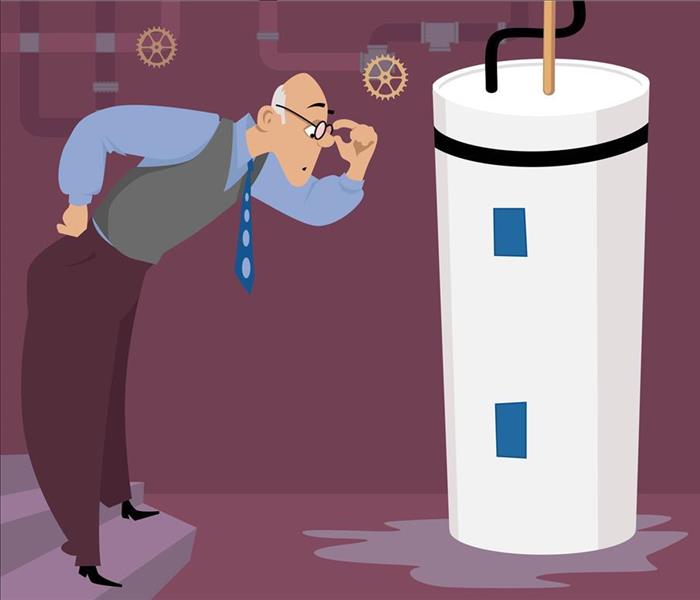Understanding the Water Mitigation Process for a Failed Water Heater
3/29/2021 (Permalink)
Regardless of the amount of planning or adherence to maintenance schedules, sometimes, home appliances fail. A leaking water heater is only one example, but it can cause significant problems if left unattended. If you find a leak in your water heater, shut off the supply and contact a water mitigation company in Roanoke Rapids, NC, for help. The service will send out a technician to assess the problem and begin the mitigation process, involving four steps.
4 Steps for Water Mitigation From a Leaking Water Heater
1. Remove Water
Coming upon a failed water heater, the technician will first address any continuing leaks, ensuring all supply lines are off. Then, they will address any standing water, using shop vacs and pumps to remove excess. Depending on the serviceability of the tank, they might choose to empty the tank as well.
2. Dry the Area
Since the leaking water heater might have caused a mess, the tech will dry the area using dehumidifiers and fans. Depending on how long the tank was leaking, they might recommend testing for mold. Mold can grow within 48 hours of moisture and water damage.
3. Repair or Replace Appliance
With the room dry, the technician will determine if the broken water heater can be fixed or needs to be replaced. While supply lines and worn connections are often the cause of water heater leaks, sometimes the system is beyond repair.
4. Restore Damages
With the new or repaired system installed, the technician will look to restore any other damage that might have occurred. For example, if the floors or drywall were damaged, they will repair it.
A leaking water heater will not always lead to extensive repairs or costs, but as with any water problem, the sooner you can resolve it, the better. A good rule of thumb is to perform a visual inspection of your water heater every time you pass it, ensuring that everything is dry and in good working order.




 24/7 Emergency Service
24/7 Emergency Service
